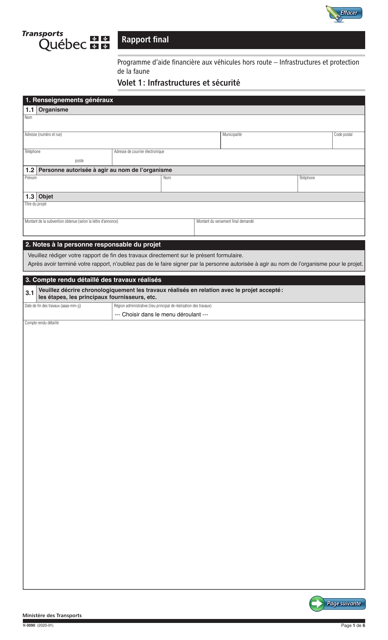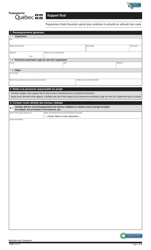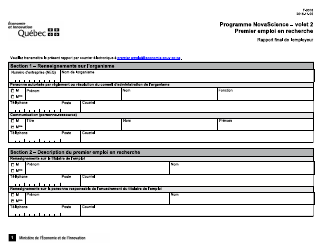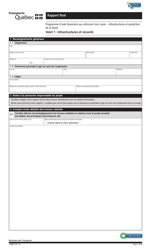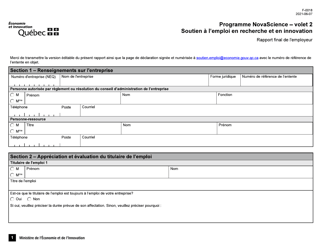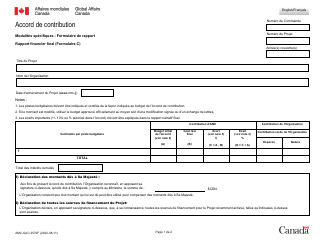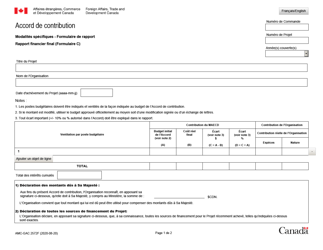This version of the form is not currently in use and is provided for reference only. Download this version of
Forme V-3090
for the current year.
Forme V-3090 Rapport Final - Quebec, Canada (French)
Forme V-3090 Rapport Final is a final report form used in Quebec, Canada. This form is typically utilized in legal or administrative procedures when a final report or conclusion is required to be presented. Although the specific use may vary based on the context, it generally serves as a formal way to summarize, present, and document outcomes or results. The form is in French, as Quebec is a predominantly French-speaking region in Canada.
Forme V-3090 Rapport Final is filed by contractors in Quebec, Canada. It is a final report form to request the reimbursement of the Quebec Sales Tax (QST) towards the end of a real estate construction project. Contractors submit this form to Revenu Quebec in order to get a tax rebate for goods and services provided for the project.
FAQ
Q: What is Forme V-3090?
A: Forme V-3090 is a document used in Quebec, Canada, typically referring to a final report or a summary of activities conducted.
Q: What language is Forme V-3090 written in?
A: The Forme V-3090 is written in French as it is used in Quebec, a predominantly French-speaking province in Canada.
Q: What is 'Rapport Final' in English?
A: 'Rapport Final' translates to 'Final Report' in English.
Q: What does reporting with Forme V-3090 generally involve?
A: Reporting with Forme V-3090 typically involves summarizing actions, findings, or results of a project or an operation, although the specifics can vary depending on the context.
Q: How can I get a copy of Forme V-3090?
A: To get a copy of Forme V-3090, one would have to contact the issuing authority in Quebec, Canada.
Q: Can Forme V-3090 be translated into English?
A: Yes, Forme V-3090 can be translated into English, but the original French language report is the legally valid document in Quebec, Canada.
Q: Is Forme V-3090 used only in Quebec, Canada?
A: Forme V-3090, being a French language document, is primarily used in Quebec, Canada. However, it could presumably be used in any French-speaking context, depending on the specifics of the form itself.
